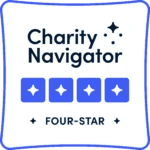For Kaleo Schneider, volunteering is not about the warm, fuzzy feelings.
Speaking on what she enjoys most about her volunteer experience, she says, “I wouldn’t say I enjoy it. You’re not doing this because you enjoy it, you’re doing it because you’re making a difference. I can see it making a difference.”
As the lead volunteer of Smart Courage, Hoʻōla Nā Pua’s youth educational outreach program, Kaleo is on the front line of making a difference in the lives of Hawai‘i’s youth. Her responsibilities take her to school classrooms throughout the island, where she addresses youth and young adults regarding the signs and dangers of domestic sex trafficking.
 Since Kaleo is an ambassador with Shared Hope International, she brings her expertise and training from that organization to her presentations here in Hawai‘i. Based out of Washington State, Shared Hope is anti-trafficking organization whose areas of expertise lie primarily in education, awareness, and law enforcement issues. One of the products of their research is a 20 minute video entitled, “Chosen,” which is specifically tailored to allow teens to self-identify with the signs of exploitation or recognize them in friends who have been trafficked. Having implemented the video into her presentations, Kaleo is quick to point out its effectiveness at linking the stereotypical concepts of sex trafficking with the reality that many exploited girls face on a day-to-day basis.
Since Kaleo is an ambassador with Shared Hope International, she brings her expertise and training from that organization to her presentations here in Hawai‘i. Based out of Washington State, Shared Hope is anti-trafficking organization whose areas of expertise lie primarily in education, awareness, and law enforcement issues. One of the products of their research is a 20 minute video entitled, “Chosen,” which is specifically tailored to allow teens to self-identify with the signs of exploitation or recognize them in friends who have been trafficked. Having implemented the video into her presentations, Kaleo is quick to point out its effectiveness at linking the stereotypical concepts of sex trafficking with the reality that many exploited girls face on a day-to-day basis.
Over the past two years—ninety-five presentations and twenty-seven schools—Kaleo has witnessed the change in response to her presentations, particularly after she began using “Chosen.” She remarks, “There’s been a huge difference. When we started over two years ago, I always thought I was crying wolf. We knew there was a problem, but we’re so behind in our legislation here that there doesn’t seem to be a problem. But about a year ago, girls started coming forward. It wasn’t a good thing, but it did confirm what we were doing.”
Despite the scope of her outreach, however, Kaleo notes that one of the hardest parts of her experience is getting the schools to take action. Although many teachers do care about the risk that traffickers pose to their students, school administrations are often hesitant to seek out education and training for students and teachers. Nevertheless, she does not intend to quit soon, pointing to the overwhelming need she sees in girls who come forward with their accounts of being trafficked.
For new volunteers, Kaleo acknowledges that getting started is often the hardest part, as one determines where his or her strengths lie and how they match with Hoʻōla Nā Pua. She advises people to commit to addressing the needs of the organization, rather than trying to create an unneeded niche. Regarding her own experience, she says, “You realize there’s a hole and someone needs to do it. It wasn’t until I went to a training that I realized there were few individuals talking to teenagers and helping them. The more I do it, the more confident I’ve become, and it’s definitely fulfilling.” In the end, this is what Kaleo measures her volunteer experience by—not the number of feel good moments, but the number of lives affected.


